We’re making learning a cooperative, social activity with our new item sharing mechanism!
Tag: game
Get Phoenicia beta 2 now!
Phoenicia is nearing it’s first stable release, with the second beta version being published to Google Play today! Download it now from the image below, then keep reading to find out what’s new in this release.
 What’s new?
What’s new?
While testing the first beta with select children and adults, the one consistent set of feedback we received was a need to explain how the game worked, what the elements did, and how to use them to advance the game play. To solve this problem we up-ended many parts of Phoenicia’s internal processes and structures to support an introduction tour that can be customized in each Locale Pack to be specific to the language, word order, and map layout the player is using.
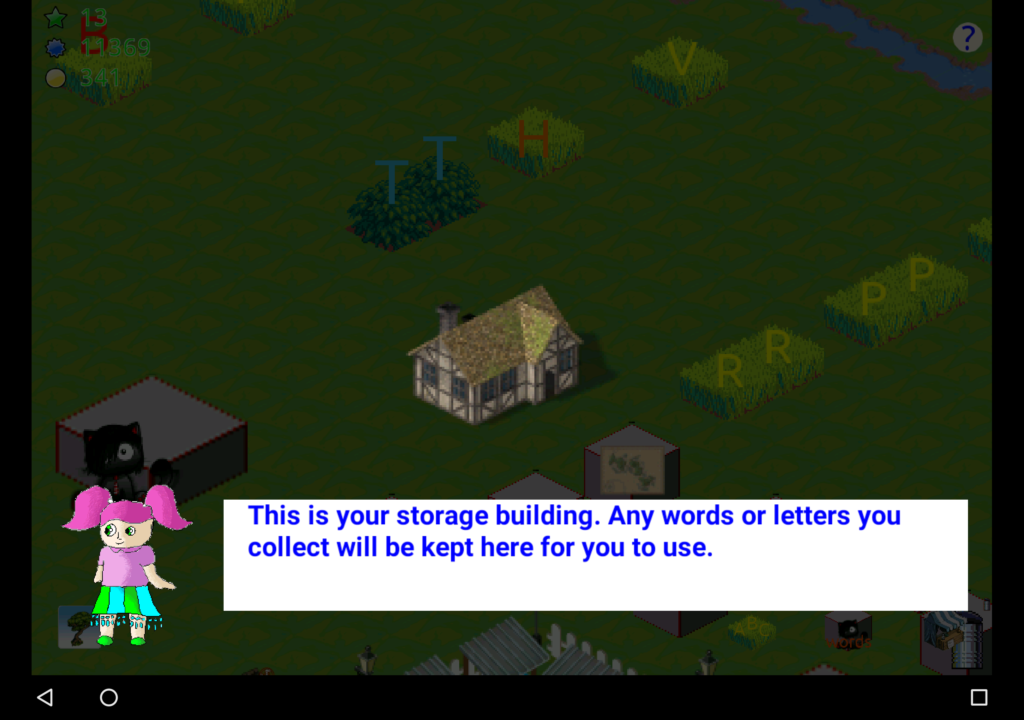
The tour will pop up at several times during the game, as you unlock new features it will be there to introduce that feature to you and walk you through the first use of it. Locale authors will need to provide translated text and recordings for this, but we maintained Phoenicia’s goal of never requiring any custom programming to support a Locale.
Speaking of Locales, after the beta 1 release we were contacted by several people who were interested in helping us expand the languages and cultures available in Phoenicia, and within just a couple of days we had a working Spanish locale thanks to Guido Vera. This really illustrates the advantage of our “no custom programing” rule, and shows that Phoenicia will be able to efficiently scale out to many more languages and locations using community contributors.
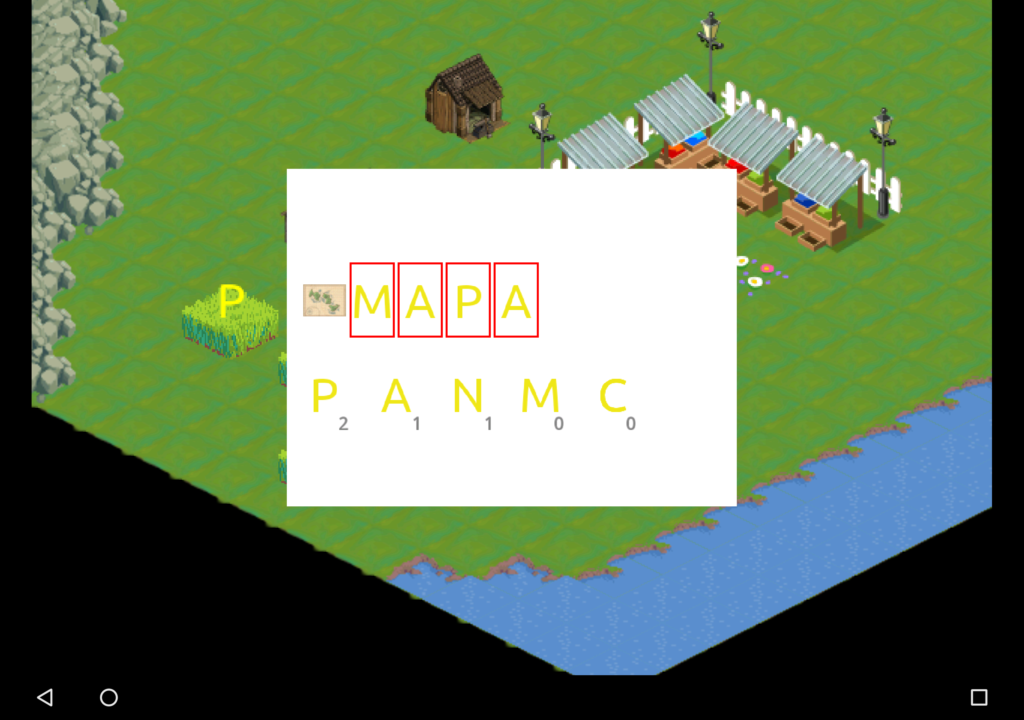
Adding a Spanish locale was relatively easy, but it uses the same alphabet as English and Kiswahili. Supporting non-latin alphabets turned out to be not so simple, and brought to light a number of assumptions the code was making based on the original alphabet. However, with a little bit of work, we were able to get an example Farsi locale running using a unicode alphabet. There remains work to be done to properly support Right-to-Left languages, and alphabets where combined characters change their shape based on those around them. But it shows that the fundamental nature of Phoenicia will work for any phonetic-alphabet, not just western ones.
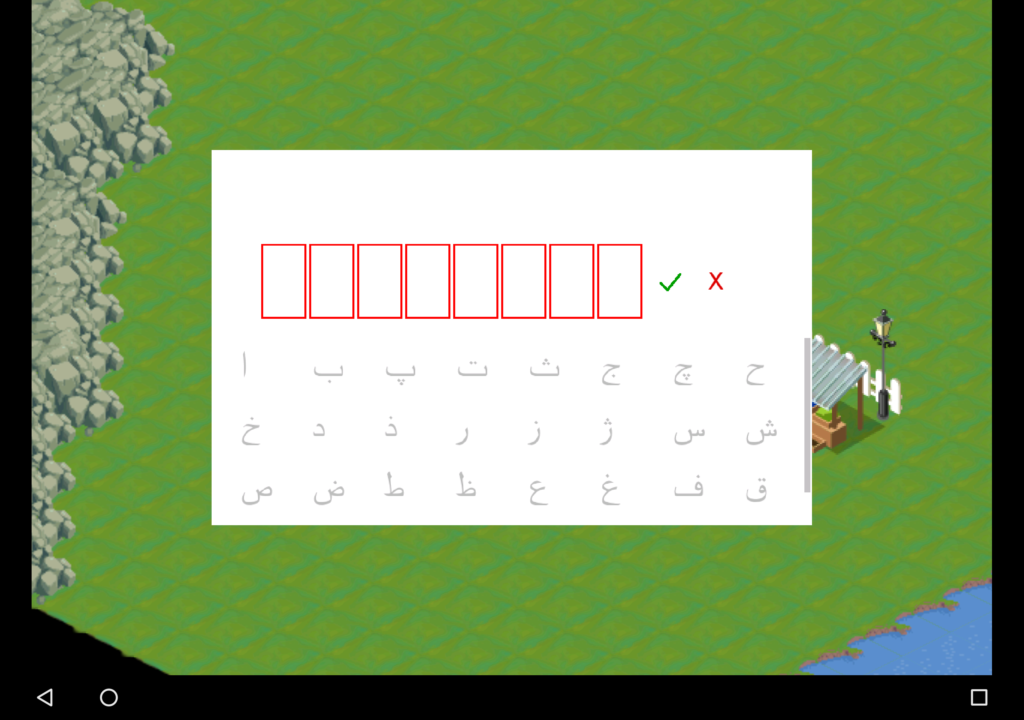
All that remains to be done before the final 1.0 release and XPRIZE submission is to incorporate the final artwork (you can see the first of it in the Marketplace building), finalize the Kiswahili locale and record audio for it, and add the last two mini-games that will introduce counting and number recognition as educational elements.
You can try Phoenicia beta 2 yourself on any Android phone or tablet. Click the image below to be added to our beta program. If you’ve installed the previous beta, you will be getting this latest update shortly! Feedback of any kind is most welcome, and contributions of locale packs, especially in French, Portuguese and Kiswahili. If you can help, leave a comment below or email me directly.
Halfway to Beta
This month we’re excited to be making another public release of Phoenicia into the Google Play Store. This Alpha 2.5 release gets us halfway to the first Beta milestone of our development, and things are really starting to come together quickly.
Multi-user sessions
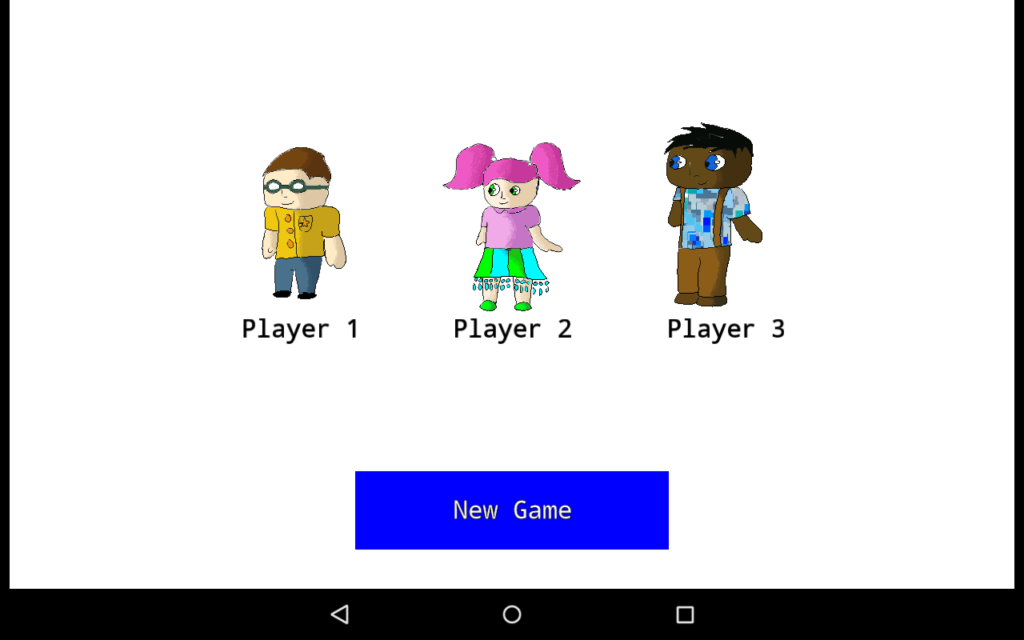
While the underlying code has supported having multiple saved sessions, there wasn’t a graphical way to actually take advantage of that. Until now. Not only does this allow you to have sessions in different languages, it also supports having multiple players in the same language, each with their own progress and personalization. This is going to be important for the XPRIZE field trials, where the children who get tablets may be sharing them with other siblings.
Word Workshop
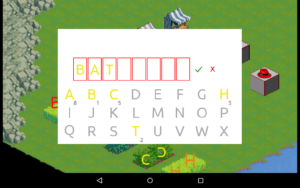
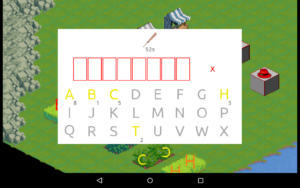 One of the important things we want Phoenicia to show children is that knowledge has value, both to themselves and to others. So we want them to be able to use that knowledge at any point in their game play. For that purpose we are complimenting the standard word building tiles with a Workshop where players can build any word that they know how to spell, whether or not they’ve been exposed to it by the game yet. Moreover, it lets them share the words they learn in the game with their friends who haven’t reached those levels yet, giving their knowledge a social value.
One of the important things we want Phoenicia to show children is that knowledge has value, both to themselves and to others. So we want them to be able to use that knowledge at any point in their game play. For that purpose we are complimenting the standard word building tiles with a Workshop where players can build any word that they know how to spell, whether or not they’ve been exposed to it by the game yet. Moreover, it lets them share the words they learn in the game with their friends who haven’t reached those levels yet, giving their knowledge a social value.
Mini-games are coming
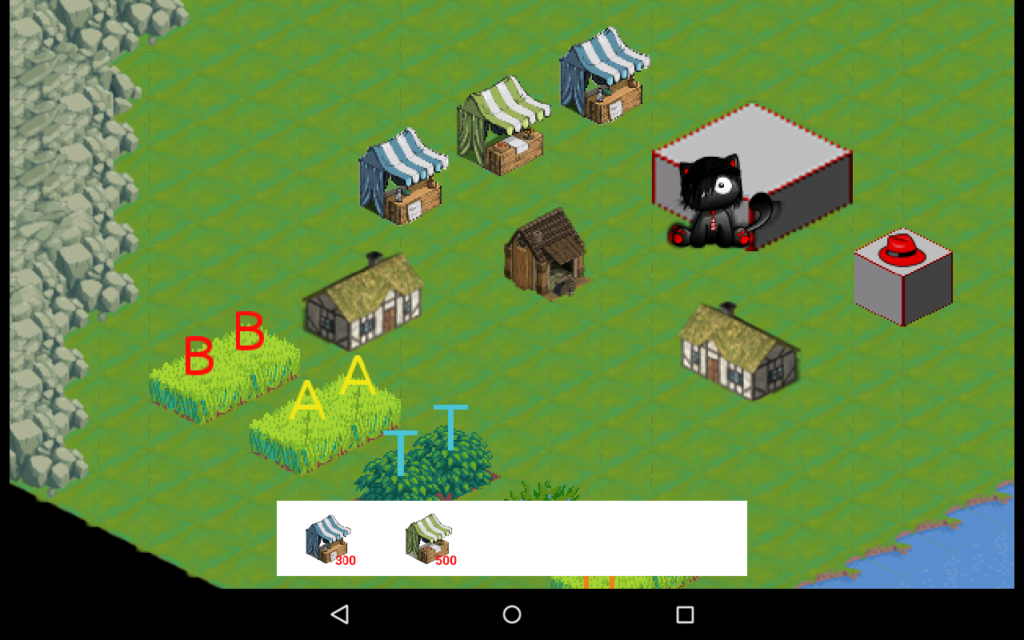
While the main game play of Phoenicia is geared towards teaching kids how to read, there’s a need for more than that. In order to teach numeracy, sequencing as well as reinforcing the literacy skills learned in the main game, we will be introducing a set of mini-games that can be unlocked by the player. While the games themselves haven’t been written yet, the framework for them is now in place.
Making it yours
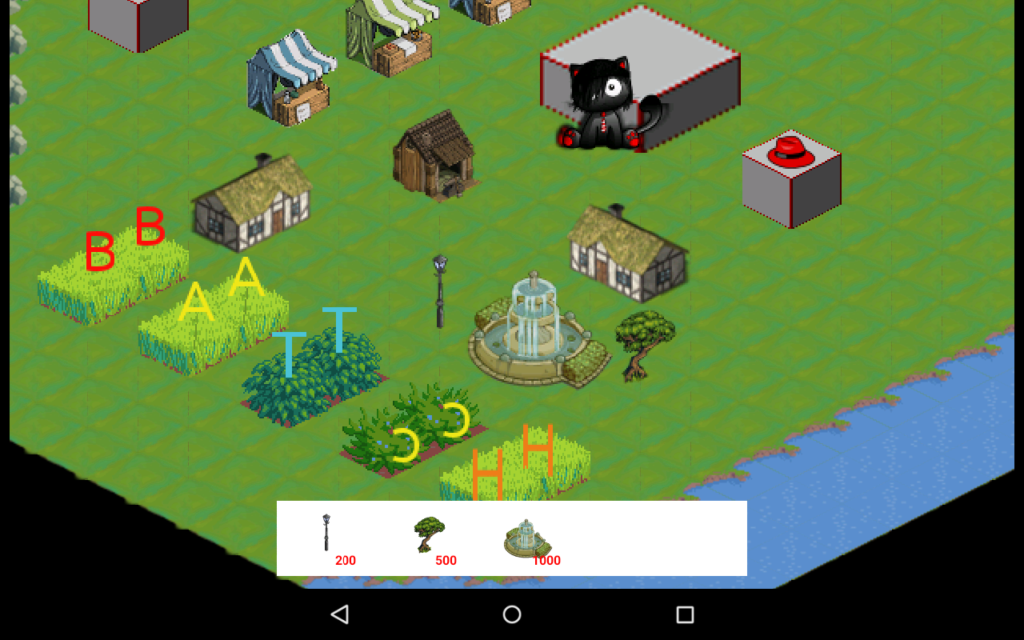 Personalization is important, especially to young kids. They like to customize things and make them their own. Creativity and learning go hand-in-hand, and we want Phoenicia to allow for both. So we’re introducing decorative tiles that will let them build their own unique world. These decorations will be unlocked as they play, and will give them a reason to keep playing and learning.
Personalization is important, especially to young kids. They like to customize things and make them their own. Creativity and learning go hand-in-hand, and we want Phoenicia to allow for both. So we’re introducing decorative tiles that will let them build their own unique world. These decorations will be unlocked as they play, and will give them a reason to keep playing and learning.
Beta 1
We’re now working towards out next big milestone, and at the end of this month we will be releasing our first Beta release. We’re already halfway through the month, and some of the highlights above were actually done in the past two weeks, but there’s still more on the roadmap for this milestone so stay tuned for our next update.
In the mean time, you can download Phoenicia Alpha 2.5 from the Google Play Store following this link, and leave us feedback either through the store or on our new chat channel.
The Beginning of a Game
I suppose there is always a story to be told, right? Phoenicia is definitely no exception to that idea, that’s for sure. I mentioned before that Phoenicia is an idea that was formed on the side of a mountain, but the story is a little more elaborate than that.
Let’s begin at the beginning.
You may know the Phoenicia team from our work on the development of the Qimo 4 Kids project. Qimo showed us that we can bring an idea to successful fruition, and Michael and I have consistently contemplated new ideas in Qimo’s wake. His friend and colleague went to the X-Prize foundation, and we discovered that there was a literacy prize ready to launch.
Michael is the brains, Brian is the creativity, and me? Well, I suppose the idea behind Phoenicia was squarely mine. Michael and I, once we discovered the upcoming competition, began to half-heartedly kick around ideas on gaming, laughing and joking that we ought to enter, but we didn’t have a solid idea of what we might actually be able to do. We had no clear game plan, if you will.
It’s amazing how ideas will come if you give them time, and the peacefulness of mind to allow them to develop. Michael and I, together with our children, and my parents, set off on a road trip up into the Appalachian mountains, a place we all adore. Ten days in the quiet solitude of a mountain cabin proves good for the soul, but it also gives the mind a chance to dream, too.
Like I said, Michael and I had continually tossed around a half-joking idea that we should enter the X-Prize competition, and he had talked to his colleague some about what the competition required, but we still hadn’t had the moment, you know? That moment when inspiration strikes.
So, imagine –
It’s late evening our third or fourth night in the cabin. The six of us have eaten dinner, the children are playing a game, my parents are watching something on the television. The sun is setting over the valley, so from the porch of our cabin, we can watch the spectacular colors of late fall turn brilliant shades of pinks and oranges. Our cabin porch is conveniently equipped with a hot tub, so we find ourselves relaxing, enjoying the gorgeous view, and just chatting about nothing in particular, until Michael brings the conversation around to the X-Prize again.
It’s a lovely picture isn’t it? Definitely the moment that stands out in my memory. So, he began to tell me about the requirements of the prize, the goals, the testing requirements, and so forth, and once more he joked “You know, we should enter!”
At that moment, it hit me, and I said, “You know how I’d win?”
And I told him.
I laid out the game, the game play, the idea right there, in that moment. Sitting on the side of a mountain, looking out over the valley, I realized I knew how to compete.
We got really excited, and talked well into the night. And when we came home, we talked with Brian – we would need his expertise on board – to make sure he was willing and able. We studied, we listed, we pros-and-cons listed. We paced, and we might have (I did) had a brief panic at the thought of entering. But when we boiled all down to the basics, we realized that we had something that could teach kids to read. And that the idea deserved a chance.
We have a long way to go, that’s for sure. There’s a lot of hard work coming, and a lot of uncertainty, but we aren’t scared. We’re up for the challenge, we’re excited to see Phoenicia come to fruition.
We hope you’re willing to come along on this ride with us. It’s going to be an amazing journey.
Welcome to Phoenicia
Welcome to Phoenicia! We’re so glad you’ve stopped by to visit. As time progresses, you’ll see posts about the game development here, as well as blog posts about our team, our ideas, and what our goals are. We are thrilled to share our experiences with you.
Phoenicia started as an idea, hatched on the side of a mountain, in response to the Global Literacy Prize challenge from The XPrize Foundation. We hope to, through fun and engaging game play, increase the literacy skills of our target group of children over the competition time. There will be more on that, and so many other topics, as the next year goes by.
We want to take a moment to thank you all for your support and encouragement. The next months will pose quite a challenge for our little development team, and we are all so thankful for the support of our family and friends who want to see this little brain-child through to fruition as badly as we do.
Stick around, come back and visit us often. There will be a lot of changes coming, and much more information. We are very excited, and would love if you’d join us on this journey.
